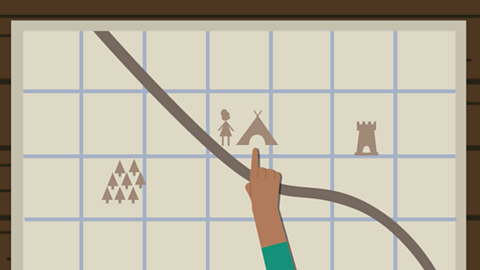Map reading and keys
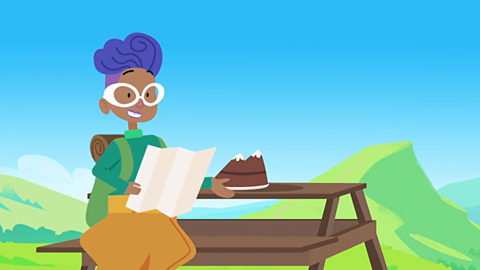
Symbols show important landmarks, places and areas. They are used because maps are usually too small to contain lots of writing
A key is a guide which explains what the symbols on the map mean. It is usually at the side of the map.

Watch: Contours, keys and symbols
It’s my friend’s birthday. He loves the outdoors, so we’re going camping and I’m taking this birthday cake in the shape of a mountain!
He’s given me this map to show the way to the campsite, but it’s really hard to understand.
He’s written names next to everything on the map, but instead of making it clearer, it looks too cluttered!
It would be clearer with symbols instead of words. Instead of using the word campsite, we could use the symbol for campsite.
And instead of writing car park, we could use the symbol for car park.
If we change all the other things to symbols, it makes it easier to understand.
We’ll need a key to show what the symbols mean. I still need to show where the hills are.
This where contours come in.
Contours are lines drawn on maps that join places of the same height.
They can be used to see the shape of the land.
Look, I’ll show you using the birthday cake.
First, I’m going to slice my mountain cake up horizontally at different heights.
Then, if we look at it from above we can see what the contours would look like.
We can see where the slope is the steepest, the contour lines are closest together.
And where the slope is shallow, the lines are far apart.
If I add contours to the map, I can see where the hills are and how steep they are.
You don’t always need cake to explain geography but it helps!
Symbols
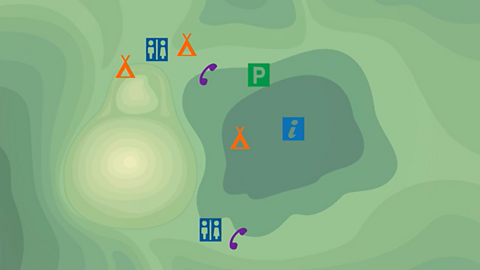
Symbols are often similar on different types of map. For example, blue symbols are used for buildings or tourist attractions.
Footpaths are usually represented by dotted green lines.
Different types of roads are shown in different colours - blue for a motorway, red for a main road and yellow or orange for narrower roads.
The key below shows what each of the symbols on the map means.
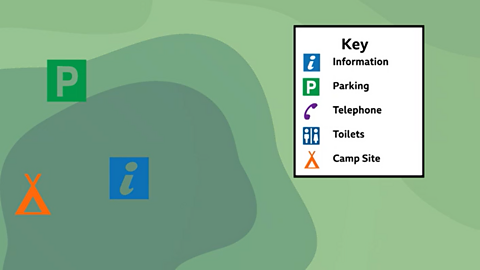
Watch: Map symbols and directions
Map symbols and direction
You can find where you are using an Ordnance Survey (OS) map. Features such as this information centre are identified on the map using symbols. This is a camping and caravan site. And here's a nature reserve.
On this map, different types of road are marked in different colours. This pink road is a main or A road. And this orange road is a secondary or B road. A full list of symbols is printed in the map key.
To work out which direction to go, use the four-points of a compass. These are north, south, east and west. North is always at the top of the map. Halfway between the four main points are four other points: north-east, south-east, south-west and north-west. Together they make an eight-point compass. So if your phone runs out of charge, you can still work out how to get from A to B.
Contours
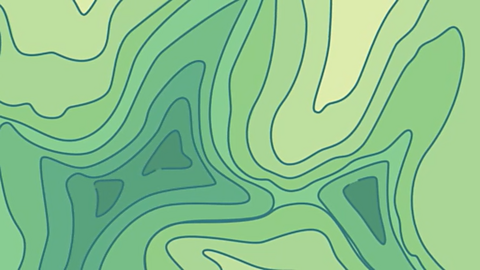
Some maps, especially ones that people use to find their way around the countryside, contain contour lines.
These are lines that show high and low areas of land measured in metres above sea level.

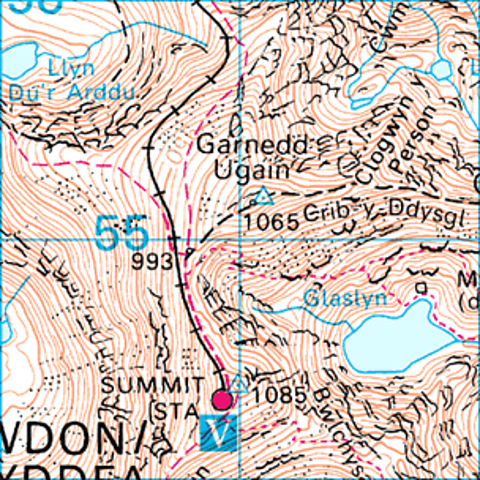 Image source, CREDIT: CROWN COPYRIGHT.
Image source, CREDIT: CROWN COPYRIGHT.The contour lines join up areas of the same height. When they are close together, it means the hill or mountain is steep. When they are far apart, it means the land is gently sloping, or undulating (up and down). Spot heights show the height of a particular feature.
This is useful to know when planning a route. You can work out whether it is going to be a hike up a steep mountainside or a walk on flat ground. If climbing Snowdonia in Wales for example, you can expect it to be steep.
Activity: Quiz – Contours, keys and symbols
Bitesize Primary games. gameBitesize Primary games
Play fun and educational primary games in science, maths, English, history, geography, art, computing and modern languages.

More on Geography skills
Find out more by working through a topic
- count6 of 10

- count7 of 10
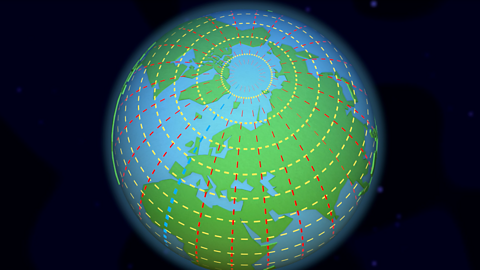
- count8 of 10
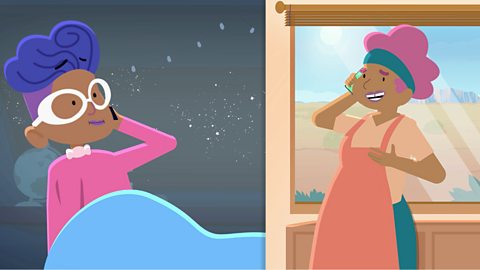
- count9 of 10
